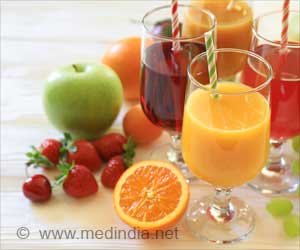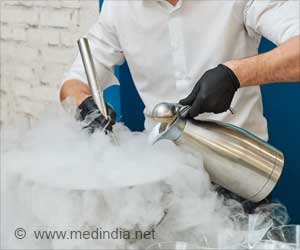- Americans spend billions on supplements for ‘heart protection’ or ‘cholesterol management’. They believe that supplements are more effective than statins for lowering cholesterol
- Six popular dietary supplements were ineffective at lowering low-density lipoprotein (LDL), or ‘bad’ cholesterol compared to a low-dose statin
Dietary Supplements Use in America
“According to a 2020 market research analysis, Americans spend an estimated $50 billion on dietary supplements annually, and many are marketed for ‘heart protection’ or ‘cholesterol management’. Yet there is minimal-to-no research demonstrating these benefits,” said study author Luke J. Laffin, M.D., co-director of the Center for Blood Pressure Disorders at the Cleveland Clinic in Cleveland, Ohio. “Some people also believe supplements are as effective or more effective than cholesterol-lowering statin medications.”In this study, six popular dietary supplements were compared to a low-dose statin in terms of how well they reduced low-density lipoprotein (LDL), or ‘bad’ cholesterol, as well as how they affected other cholesterol levels and inflammation markers.
Good Cholesterol and Bad Cholesterol
Cholesterol comes in two varieties. Because it safeguards the heart, high-density lipoprotein (HDL) cholesterol is referred to as the ‘good’ cholesterol. High levels of low-density lipoprotein (LDL), sometimes known as ‘bad’ cholesterol, on the other hand, are associated with an increased risk of heart disease and stroke because these deposits can constrict and stiffen arteries. Increased poor cholesterol is a global issue that is getting worse. According to American Heart Association 2022 statistics, there were 4.51 million deaths worldwide in 2020 that were directly related to high LDL cholesterol, a 19% increase from 2010.Researchers examined the health records of 199 persons between the ages of 40 and 75 who had no personal history of cardiovascular disease for the Supplements, Placebo or Rosuvastatin Study, or SPORT, study. Participants’ LDL cholesterol levels ranged from 70 to 189 mg/dL, and they were at a 5%–20% risk of developing atherosclerotic cardiovascular disease in the next ten years.
From day one to day 28 of the trial, participants were randomly assigned to one of eight groups, and their LDL cholesterol and other heart disease markers were monitored in each group. A placebo, or sham pill, 5 mg of the commonly prescribed low-dose statin drug rosuvastatin, or one of six dietary supplements (Nature Made® fish oil, 2,400 mg; NutriflairTM cinnamon, 2,400 mg; GarliqueTM garlic, 5,000 mcg; BioSchwartz turmeric curcumin, 4,500 mg; Nature Made® CholestOff PlusTM, 1,600 mg; or Arazo Nutrition brand of red yeast rice, 2,400 mg).
Statin or Dietary Supplements: What is More Effective at Lowering Cholesterol
1. After 28 days, participants who took the statin experienced an average LDL cholesterol reduction of 37.9%, whereas changes in LDL cholesterol levels among those who took any of the dietary supplements were comparable to those in the placebo group.2. Total cholesterol decreased on average by 24% in the statin group, a greater reduction than in the placebo group or with any dietary supplement. For participants taking any of the dietary supplements, there was no difference in total cholesterol measurements when compared to the placebo.
3. Blood triglycerides were reduced by 19% because of rosuvastatin. There was no difference in triglycerides between any of the dietary supplements and the placebo.
4. With rosuvastatin, HDL cholesterol did not change significantly.
5. The dietary supplement containing plant sterols significantly reduced HDL cholesterol when compared to the placebo.
6. The garlic dietary supplement significantly raised LDL cholesterol when compared to the placebo.
7. During the 28-day study period, none of the study interventions significantly changed blood levels of inflammatory markers that indicate a higher risk for heart disease.
“Although there are prior studies demonstrating that red yeast rice and plant sterol supplements may reduce LDL cholesterol, the findings of our study underscore that the contents of these dietary supplements may vary. Therefore, they do not produce consistent reductions in cholesterol,” Laffin said. “This study sends an important public health message that dietary supplements commonly taken for ‘cholesterol health’ or ‘heart health’ are unlikely to offer meaningful impact on cholesterol levels. The results also indicate that a low-dose statin offers important beneficial effects on one’s cholesterol profile. Future research should study other types of dietary supplements and their potential impact on cholesterol levels.”
Heart Healthy Guidelines by American Heart Association
In its 2018 Cholesterol Guidelines, the American Heart Association places a strong emphasis on leading a heart-healthy lifestyle. The group also advises against supplement use and urges healthy individuals to consume a range of foods in moderation to obtain appropriate nutrition. Additionally, the Association advises adults with mild to moderately elevated blood pressure and blood cholesterol who otherwise have low heart disease risk to engage in physical activity as their best first line of treatment.One drawback of the study is that it only lasted for 28 days, which was long enough to show that the statin medication reduced LDL cholesterol. “However, it is unknown if some of the supplements may require a longer time to have any effect on cholesterol,” according to Laffin.
Source-Medindia
















